Turnaround
Andrea Goldman, Leanna Hamill and Fred Bauerlein are alone, but they’re not unique. Like thousands of their colleagues across the country, they are solo practitioners struggling to make ends meet.
Bauerlein’s criminal defense practice and Goldman’s construction law specialty took huge hits from the economy, and by the late summer of 2009 their efforts to rebuild hadn’t borne fruit. Hamill, who specializes in estate planning and elder law, hadn’t been able to comprehend her practice’s month-to-month battle for profitability.
To help these solos understand where they’ve gone astray and get their practices on track, we asked practice management consultants Jerry Schwartz, Dennis McCue and John Olmstead to analyze their business and financial records and conduct telephone consultations. Then the consultants gave a no-holds-barred assessment.
And six months later, we checked in with the lawyers to see what had changed for them.
The result is a frank and sometimes painful discussion about the solos’ practices. The recommendations surprised and invigorated the solos—and may do the same for you. Here are their recession-era stories.
BIG EFFORT, LITTLE MONEY
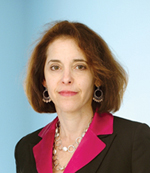
Andrea Goldman
Photo by Tim Llewellyn
Before the recession, Andrea Goldman, 50, had a “fairly solid” client base handling construction, business and real estate disputes in Newton, Mass. But the economic downturn forced Goldman, a solo since 2000, to realize that her bread and butter—construction—was unprofitable both for her and her clients.
“Homeowners invest money in projects and then need to hire new contractors to complete the job or make repairs when problems develop,” she explains. “They then seek my advice and are usually so strapped for cash that they either can’t afford to pay me or I’m forced to litigate on a tight budget.”
Even if Goldman could get a judgment against a contractor, collecting was well-nigh impossible. “I ended up turning most queries away after spending a considerable amount of time on the phone discussing the homeowner’s issue.”
Goldman would like to represent more contractors than homeowners, but that’s been a difficult sell. “I’m not going to get huge companies; they’ll go with the big firms downtown” in Boston, she says. “But a lot of the people I meet are too small to have repeat legal business.”
In addition, many small contractors are so independent, it’s a battle just to get them to realize they need an attorney, followed by another battle to get them to realize they need Goldman.
About 10 percent of Goldman’s practice has been arbitration and mediation cases, and she’d like that to grow to about 30 percent. “I love working in alternative dispute resolution,” she says. “But the cases are few and far between.”
Goldman’s marketing activities would make many other solos dizzy. She runs the Home Contractor vs. Homeowner blog, writes, does seminars, belongs to the Builders Association of Greater Boston, and has signed up as a mediator or arbitrator for numerous organizations. She’s also launching a consortium of construction attorneys that will serve as a referral service for the construction industry.
“I’m a person with a lot of ideas, and I’m involved in a lot of things,” Goldman says. “Given all my activities, my bottom line is horrendous. This year, I’m barely profitable.”
Goldman’s energy and ideas are her Achilles’ heel, says Jerry Schwartz, president and CEO of Legal Management Services Inc. in Memphis, Tenn. Goldman is simply spending too much time on ideas unrelated to her core business—which is practicing law.
“She needs to have a clearer focus of her law practice and get rid of the other things she’s spending time on—the mediation and arbitration, the construction consortium, and even some of the marketing,” says Schwartz. “She needs to build her law practice before she can focus on other things.”
Goldman’s goal in pursuing noncore business activities has been to create a multifaceted and sustainable practice, but Schwartz says you can’t expand your practice before you’ve built it.
“The construction consortium isn’t a bad idea, but it’s a bad idea right now,” Schwartz explains. “The same is true of mediation and arbitration. The time will come when Goldman can pursue that, but she needs to set that aside for now and focus on her practice.”
Marketing has also become a distraction. “She does too much, and she’s doing one-time things with no follow-up,” says Schwartz. “She’s got her website and blog. She writes. She does seminars. All of which take her away from her practice and aren’t focused. If she’s going to speak at an event before 25 people, she needs to be in touch with them afterward with an e-mail or brochure to keep them interested in what she has to offer.”
One reason Goldman hasn’t realized that her efforts have been a time-gobbling distraction, Schwartz says, is that she’s not taking full advantage of her financial software, nor is she keeping track of her time.
“Nobody likes writing time down,” he says, “but it’s like building a house and not keeping track of costs. How do you know if you’re profitable?”
Tracking time will also help Goldman see just how much of it she’s spending on client consultations for which she isn’t reimbursed. It may also prompt her to adopt Schwartz’s suggestion of charging for those consultations (Schwartz suggests $1,000).
To develop business with contractors, Schwartz suggests replacing one-shot marketing efforts with more targeted tactics. Because Goldman is fluent in Spanish, she should translate her blog to capture more of the growing Latino market. She could also offer a $50-$75 seminar or webinar in Spanish and English in which she explains how to get a contractor’s license and comply with Massachusetts law when starting a construction company. “She provides a service,” he says, “and gathers a list of names she can use to follow up.”
What does Goldman think of Schwartz’s advice? Though at times it felt “like someone throwing ice on your face,” she’s mostly on board. She’s tabling the construction consortium idea and is “pretty sure” she’s going to resign from two of her arbitration panels. She’s going to translate her blog into Spanish, develop a contractor seminar series, and “be more religious” about timekeeping.
Goldman is quick to point out that she’s more organized than it might appear. However, in her effort to rebuild after the economy crashed, she got lost in the weeds of her ideas.
“I’m fairly organized, but I didn’t have a clear-cut plan,” she says. “Especially the last few months, I’ve been doing a lot of reading and mulling over what to do. Because of that, it was a little hard to see the forest for the trees. Jerry was very helpful in getting me to see that.”
WOMEN FIRST AND ONLY
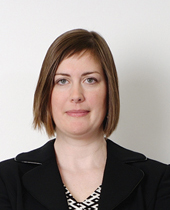
Leanna Hamill
Photo by Tim Llewellyn
Leanna Hamill, 37, still hasn’t “reached a comfortable stride” after five years as a solo in Hingham, Mass. She’d hoped that at some point she wouldn’t have to worry about marketing because there would be a steady stream of clients through referrals and her website. She isn’t there yet.
“I do great work and have fantastic clients, but I just need more of them,” she says. “I’m supporting myself, but my monthly revenues aren’t where I’d like them to be. There are still months that are higher and some are lower, and I’d like to get it down to a more even keel. I’d also like to put more money toward retirement and pay down the debt I accrued starting the firm.”
Hamill admits she’s a low-key marketer. Her blog, Massachusetts Estate Planning and Elder Law, generates about 50 percent of her clients, and she supplements that with participation in a women’s networking group.
“I’m not out there trying to convince people that they need to do their will,” she says. “I’m trying to get out more in the local community and become more well-known through seminars or writing articles, but I’ve done those things on an inconsistent basis.”
Like many solos, Hamill sometimes has trouble closing the deal with potential clients.
“I attract a fair amount of inquiries from referrals and my website,” she explains. “But I lose them at the engagement stage, or they ‘need to think about it’ and never get back to me.”
Hamill’s problem is the opposite of Goldman’s, says Dennis McCue, principal of Dynamic Firm Management Inc. in Newport Beach, Calif. Her marketing is too targeted to too narrow a market, which is shrinking her pool of potential clients.
“Hamill is networking with a small group of people, and it’s been with other women,” McCue says. “She’s so focused on associating with other women that I think it’s detrimental to her. I’m not sure that doesn’t affect who hires her, and it may limit the size of the cases she gets.”
Hamill should look instead for networking groups in which male attorneys participate and build business relationships with them. “She should also build relationships with people at bank trust departments so she’ll get more exposure to larger cases,” he says. “She essentially needs to go where the money is.”
McCue also recommends that Hamill connect with more experienced estate planning attorneys. “If you go to people more experienced than you, they’ll help,” he explains. “Besides, there are always conflicts and small matters they can’t handle, so it would be good business for a smaller attorney.”
Overall, McCue says, Hamill needs to more fully embrace marketing as a foundation of her practice.
“She may suffer from what I call shingle disease,” he says. “You hang up your shingle and expect people to come. She doesn’t understand you have to be a marketer first and a service provider second. You don’t have to give 100 percent to marketing, but you have to focus on it. That’s true of every business, but many professionals don’t think that way.”
McCue’s advice was “eye-opening in terms of where I’m putting my energy and the return,” says Hamill. “As he and I talked, I realized the place I’m spending my time networking—the women’s networking group—wasn’t bringing in any business. Instead, I was getting the most business from individual referral contacts to whom I hadn’t been paying much attention. Right away, I contacted those people and took them to lunch to thank them and talk to them more.”
Hamill says she enjoys the women’s networking group, but McCue’s comments have made her rethink how she and other women market. “Is it the style of women that they don’t ask for business as much as men?” she asks. “Or was it the group and its makeup that caused me not to get much business?”
She doesn’t have an answer, but she’s re-evaluating how she’ll participate in the group. “From now on, I’ll have a plan before I go,” says Hamill. “If I count this toward my networking, do I need to be marketing my business more at this event? If it’s just an enjoyable event, then I need to do other marketing for my business.
“I’ve also started to look at other groups that are more diverse, such as those having more financial advisers who do refer business to me as opposed to coaches or people between careers who aren’t in a position to refer me or hire me themselves.”
Hamill also plans to network with contacts in bank trust departments, and she plans to build relationships with her competitors. “That’s a very good idea and something I’d never thought of,” she says. “I haven’t done it yet because it’s made me uncomfortable, but I think being uncomfortable is good.”
Finally, to cut down on the number of potential clients who do an initial consultation but don’t retain her, Hamill is taking McCue’s advice to always insist that the decision-maker participate in the consultation.
There’s one piece of advice Hamill won’t be adopting. McCue suggested she offer to speak about estate planning and elder law to vacationers on cruise ships. “It’s an interesting and innovative idea because you have a captive audience with disposable income,” she says. “But I don’t like cruises.”
THE SLOW SQUEEZE
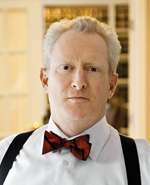
Fred Bauerlein
Photo by Stan Kaady
Fred Bauerlein, 47, is on the brink. he’s operated a solo practice focusing on criminal law with a small amount of business representation in Marietta, Ga., for nine years. But he’s drained his reserves, and he even fell behind on his office rent last summer, though he caught up the next month.
“Things started to tighten up,” he says. “It wasn’t anything drastic. It tightened up, tightened up, and then it tightened up some more.”
The problem has several roots. As criminal defense lawyers know, many once-flush potential clients are now choosing to be represented by public defenders. Those who do have money are reaping the benefit of price competition.
“If I quote a fee of $2,500,” Bauerlein says, “my clients can call down the street and an attorney will represent them for $2,000 or $1,500.”
Bauerlein, who’s been a solo since April Fool’s Day 2001, has also been hit by what he calls downward competition. “I’ve known a lot of lawyers who would never touch criminal work,” he says. “Now they’re battling for those cases.”
As a dual U.S. and U.K. citizen (because his mother is British), Bauerlein has attracted some British clients. Yet the worldwide economic downturn has shriveled that business. “Potential British clients have a much harder time paying my fee,” he says. “They really think twice about whether they need or want me.”
Like many other solos, Bauerlein is in survival mode. He cut expenses by helping his full-time secretary find another job and hiring a part-time receptionist. He then had to cut that expense, and now he answers his own phone. “That’s not a big deal,“ he says, “but it’s a blow to the ego.”
Because he’s just making ends meet, Bauerlein has no money for marketing. He also calls himself “the world’s worst marketer.” So he’s begun calling past clients to ask if there’s anything he can do for them—and he’s accepting every matter he’s offered.
“I’m taking anything that walks through the door,” he says. “I don’t do divorces, but I’m doing them now. They pay, and I have bills to pay.”
“Most small firms that had fairly decent practices are doing OK today,” says John W. Olmstead, principal at Olmstead & Associates in St. Louis. “The ones being tested are those that didn’t really have it together and weren’t stable in the first place. Bauerlein is one of those.”
For Bauerlein and other distressed solos who have to reboot now that the economy has exposed flaws in their business models, Olmstead says they must first ask themselves whether a solo practice is truly where they should be.
“If Bauerlein wants to turn this thing around, he’s going to have to work his tail off,” Olmstead says. “He has to be sure being in practice for himself is what he wants to do.”
If so, Olmstead says, Bauerlein’s biggest priorities should be capital and clients, both of which he needs in spades. Whether he has to borrow from friends and family members, push harder for retainers or get a part-time nonlegal job, Olmstead says Bauerlein needs to rebuild his reserves so that he can begin to pay for marketing that will push his firm toward profitability.
The goal should be a website that makes Bauerlein appear less like a commodity and more like an attorney who has a skill no other attorneys offer; a Yellow Pages ad (often a good source of business for criminal lawyers); and perhaps an ad in a Catholic church bulletin, which many of Olmstead’s clients have had surprisingly good success with.
Like Hamill, Bauerlein needs to network more with other attorneys. “Entire practices have been built from lawyer referrals,” Olmstead says. “That’s one of the most important things he should be doing.”
At the same time, Olmstead suggests Bauerlein take advantage of no-cost options like the State Bar of Georgia’s Law Practice Management Program, which offers training resources and management consultations, and its attorney mentoring program. Bauerlein’s long-term goal should be to move “up market, graduating from the lower-end commodity legal work of DUIs and small criminal matters to larger cases,” says Olmstead.
“Sometimes that’s a function of luck—getting the right phone call and the right case. But you have to prepare yourself with the right education. Visibility and testimonials on his website can also make that happen.”
The key is focus, Olmstead says, and the best way to get that is by writing things like a mission statement, a life plan and a practice action plan, even if it’s only a one- or two-page document that outlines the milestones Bauerlein wants to accomplish, along with target dates.
“That’s important for focusing solos like Bauerlein,” he says. “In addition, when I’m coaching solos, we talk every week. Bauerlein needs something similar, whether it’s talking to a friend, a colleague or someone through the mentoring program, ‘to help him stay on focus.
“That’s one of the biggest problems lawyers have. When you feel like things are falling in on you, what do you do, and what do you do first? You have to get your plan down on paper and then go by the numbers.”
Bauerlein’s reaction? “I should absolutely be practicing law,” he says. “I love practicing law, I love being an attorney, and I’m good at what I do.”
He doesn’t fully agree that he’s starting over, but admits he didn’t organize his practice well from the start.
“When I started, I didn’t know what I was doing,” he says. “Things were unorganized to say the least, but I managed to hold my own quite well. When the recession hit I wasn’t prepared, so I do have to repeat a lot of steps. But that’s OK. I’ve now been given tools to work with and have a better idea of what I’m doing.”
Most helpful was Olmstead’s suggestion to take advantage of the state bar’s practice management and mentoring resources, which Bauerlein plans to do.
“Having somebody in my corner would be great,” he says. He’s also going to work to build better relationships with attorneys who may be able to refer business to him.
Bauerlein also agrees he should be building a more up-market clientele. He’s recently become more active in Atlanta’s British American Business Group, which he hopes will broaden his practice.
“I’m going to move from being a small-time criminal lawyer to being a small-time international lawyer who concentrates on a British clientele,” he says. “It’s a strange move, I admit. But it’s an avenue that popped open, and I’ve got to take advantage of it while it’s there.”
Bauerlein is also planning to follow through on Olmstead’s more “amorphous and squishy” suggestions to create business and personal plans.
“I’ve never heard of people sitting down to write a business plan for their life,” he says. “I’ve also never thought about where I want to be when I die and the legacy I want to leave. But I’ve thought about it nonstop since John mentioned it, and I’m going to take a hard look at what I want out of the practice of law and how it can benefit my life.”
AN UPDATE
About six months after the interviews above, we checked back with our striving solos to see what advice stuck, what didn’t and how their practices are faring in 2010.
The consensus is that things are looking up.
Goldman says her increased focus has paid dividends in the new year.
“The main advice I received from Jerry was to stop being so diversified and focus on business development,” she says. “I’ve been marketing with a vengeance, and things are somewhat better because I’ve picked up a few new cases. I believe my increased marketing efforts are starting to pay off.”
However, she’s still considering alternatives to litigation because she simply doesn’t find it as profitable or enjoyable as she used to.
Since her consultation, Hamill’s approach to her business has changed.
“Talking with Dennis was so helpful,” she says. “I did a complete analysis of where my clients were coming from and whether my marketing efforts were focused in that direction. It turned out that my best clients were coming from a select group of other professionals that I had very little contact with other than the referrals. And my networking was all with groups that weren’t referring business to me and probably wouldn’t be anytime soon due to the makeup of the group.”
“I spent several months taking my referral sources to lunch to learn about their businesses and thank them for the business they had been sending me,” she says. “This really paid off, and the relationships have grown.
“Business has definitely gotten better,” she says. “My continuing analysis of where my clients come from and making sure I’m tending to those relationships—as well as the advice from Dennis to always think: ‘How is this activity leading me toward my ideal client?’—has definitely focused my efforts and made me feel quite good about 2010.”
Like Goldman’s and Hamill’s, Bauerlein’s practice has picked up since his consultation.
“I got a nice bump right around Thanksgiving, and all were DUIs that came from referrals,” he explains. “I managed to get back on my feet and put a few dollars in the bank.”
As could be expected, not all the advice was followed to the letter.
“John’s recommendations were very good, but some would be kind of hard to implement, like going to lunch with another attorney five days a week,” Bauerlein says.
“That gets a little expensive for me. Plus I live two miles from my office, so eating at home is too easy.”
Sidebar
The Consultants

Jerry Schwartz
Jerry Schwartz has been a law firm administrator and a consultant to the legal profession since 1981. He formed Legal Management Services Inc. in 1989 to provide management and consulting services to small and medium-size law firms.
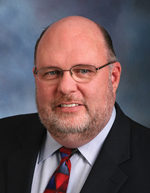
Dennis McCue
Dennis McCue is a member of the California Society of CPAs. His company, Dynamic Firm Management Inc., has done consulting for partners in law, accounting and other professional service firms for more than 20 years.
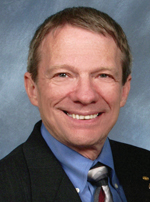
John W. Olmstead
John W. Olmstead is president of Olmstead & Associates—Legal Management Consultants and Life On Balance in St. Louis. Olmstead has more than 41 years of experience working with law firms and other professional service firms
Correction
In the print version of “Turnaround,” March, the consultants pictured on page 55 were identified in the wrong order. The correct order is, from the top, Jerry Schwartz, Dennis McCue and John W. Olmstead.The ABA Journal regrets the error.
G.M. Filisko is a lawyer and freelance journalist in Chicago.



